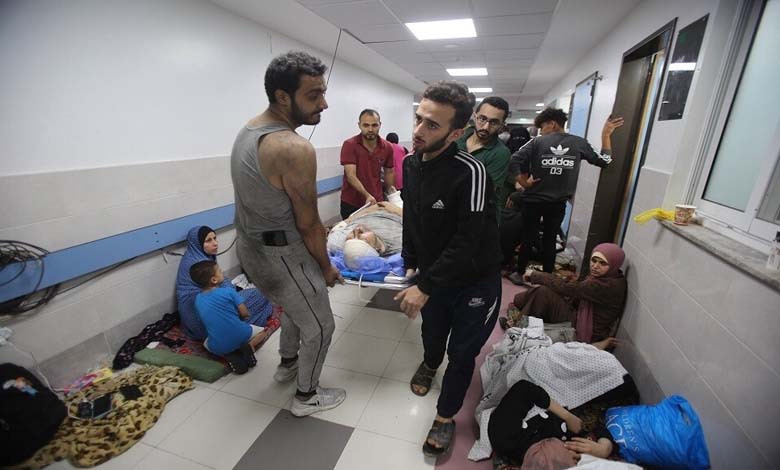Gaza hospitals face severe shortages of medical supplies as Israeli attacks continue

Hospitals in Gaza are facing a severe shortage of medical supplies as Israeli attacks continue. Medical facilities across the enclave are struggling with critically low levels of essential items, while Israeli airstrikes persist, killing more than fifty people and injuring over one hundred others in recent days.
Medical and relief workers in Gaza confirmed that supplies such as gauze, disinfectants, ointments and antibiotics are rapidly running out, according to the British newspaper The Guardian.
Speaking to the British newspaper, Mohamed Saqr, director of nursing at Nasser Hospital in Khan Younis, said: “We are still suffering from an acute shortage of most supplies and medicines. We face daily crises, with the same gaps and deficiencies in logistics. We remain overwhelmed as many injured people continue to arrive.”
He added: “There is not much difference from the period before the ceasefire. Unfortunately, the bombardment is still ongoing… We do not feel any significant change.”
Humanitarian organizations have sent hundreds of tons of supplies to Gaza since the US-backed ceasefire went into effect last month, but medical supplies remain insufficient.
In a statement, Joe Belliveau, executive director of the US-based NGO MedGlobal, said: “There is a shortage of staff, a shortage of ambulances… The entire health system remains on the verge of collapse, with severe shortages across all sectors.”
The Gaza Ministry of Health reported that more than three hundred people have been killed in Israeli attacks since the ceasefire began, noting that large numbers of people are suffering from malnutrition, harsh weather conditions, lack of shelter and the spread of diseases.
The first phase of the ceasefire agreement has been nearly completed, with Israel partially withdrawing from half of the Gaza Strip and all hostages previously held by Hamas having been released.
It was also agreed that a Palestinian committee of technical experts should be formed to administer Gaza under US presidential supervision, along with the deployment of an international force to help stabilize the situation.
As violence continues in Gaza, the agreement is now under threat, although both parties have reiterated their commitment to it. The office of Israeli Prime Minister Benjamin Netanyahu stated that five senior Hamas members were killed in Israeli airstrikes last Saturday. Gaza health officials reported twenty-four deaths and fifty-four injuries, including children.
Israeli attacks on Gaza are one aspect of the war that began in October 2023 when Hamas fighters launched a surprise assault on Israel, killing around 1,200 people, mostly civilians, and abducting 251 others. Humanitarian organizations state that Hamas still holds three living hostages.
The Israeli military said it launched strikes in response to what it described as a “serious breach” of the ceasefire, involving an armed attacker who crossed into an area under Israeli control and opened fire on soldiers in southern Gaza. The military said no soldiers were injured and that the assailant used the route through which humanitarian aid enters the enclave.
Although food aid has been arriving in Gaza since the ceasefire began in October, the quantities remain insufficient to meet the vast humanitarian needs. Winter rains have begun to damage the food supplies delivered, according to the United Nations World Food Programme.
Belliveau added: “We are beginning to see some stabilization in malnutrition cases, which improves the situation slightly. The World Health Organization has had some success delivering medicines and medical supplies, but two of our trucks loaded with medicines have been stuck since October 10 awaiting authorization from Israel.”
Israel has denied accusations that it is obstructing humanitarian aid, accusing Hamas of stealing supplies. The Israeli military’s humanitarian coordination office said that “aid is flowing regularly… hundreds of trucks every day carry food, medical equipment and shelter supplies.”
Overall, the ongoing war in Gaza has killed more than sixty-nine thousand Palestinians, most of them civilians, while thousands of other bodies remain under the rubble, further complicating the dire humanitarian situation in the devastated enclave.












